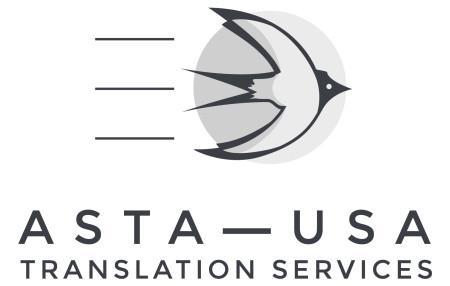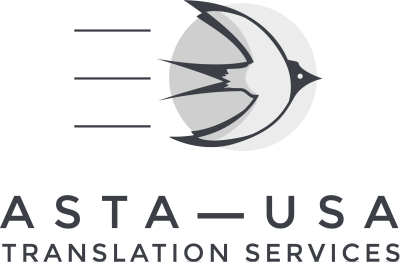ASTA-USA Discusses the Dark Side of AI and How Medical Translation Errors Have Harmed or Killed Dozens of Patients

DALLAS, September 10, 2024 (Newswire.com) - Hospitals’ reliance on flawed online translation tools and unskilled translators has harmed or killed dozens of patients. ASTA-USA Translation Services, Inc., a leader in professional document translation services, advises healthcare organizations that using AI translation services or unvetted translators can put patients and their families at risk and expose institutions to legal liability and damage to their reputations.
A 2023 investigation by the British Broadcasting Company found that translation issues have contributed to more than 80 cases of infant fatalities or serious brain injuries between 2018 and 2022 in the United Kingdom. Hospital staff often used online translation tools to try to communicate complicated medical issues to non-English speaking patients.
In a 2021 case, a Sudanese woman went to a hospital in Gloucester for what she thought was a routine check-up. Staff at the hospital could not communicate effectively with her and her husband about what actions to take. Complications developed: she suffered a catastrophic bleed and died after giving birth to her daughter.
In April 2022, a Syrian woman suffered a life-threatening bleed after giving birth to her first child at a Glasgow hospital. Staff tried to use a popular web-based AI translation program to explain their plans for an emergency procedure, but the patient could not understand their intent. The hospital removed her uterus without her consent.
In South Florida, an 18-year-old boy was in a coma and taken to the hospital. His family described his condition using the word “intoxicado,” which means a person ingested something that caused illness. The hospital’s translator erroneously interpreted it as meaning the boy was intoxicated. The doctor made an incorrect diagnosis of a drug overdose, which led to the boy becoming a quadriplegic.
These incidents demonstrate the real risks when hospitals rely on artificial intelligence translation tools to communicate with patients and their families.
“Entrusting critical medical translations to AI tools or unverified freelancers can lead to significant risks to patients,” said Alain J. Roy, founder and CEO of ASTA-USA. “Healthcare organizations must use subject matter expert translators who understand the industry and its terminology. The safety of patients is too important to leave in the hands of a computer program.”
In fact, a 2021 study by physicians at UCLA Medical Center and Memorial Sloan-Kettering Cancer Center concluded that using a widely used AI-based web translation tool program should not be used by hospital emergency departments for discharge instructions.
They found that the tool’s “accuracy varies widely by language and is not yet a reliable tool in the clinical setting. Even for languages in which the accuracy is high, there is still the potential for important inaccuracies and the potential for patient harm.” The researchers recommended that the “best practice remains to use prewritten, professionally translated discharge instructions in the patient’s native language” and, when necessary, to have a translator verbally interpret instructions to the patient.
As a language translation service, ASTA-USA utilizes subject matter expert translators to ensure the accuracy of translations because patient safety is paramount in the healthcare industry. Qualified human translators can communicate critical messages properly without any misunderstanding. Since its inception in 1987, ASTA-USA has been instrumental in providing document translation services for organizations in specialized industries, including medical and healthcare organizations.
To learn more about ASTA-USA and its experience in the healthcare industry, visit https://asta-usa.com.
About ASTA-USA Translation Services, Inc.
Corporations and governments of all sizes rely on the expertise of ASTA-USA to translate their written materials and provide real-time, live human interpreting services. Since 1987, ASTA-USA has offered premium translations in over 70 languages for various industries using 700 primary certified language translators and native speakers with industry-specific knowledge and a network of more than 12,700 translators and linguists worldwide, including the United States, Canada, the United Kingdom, the Middle East, Asia, South America, Latin America, and Africa.
Source: ASTA-USA
